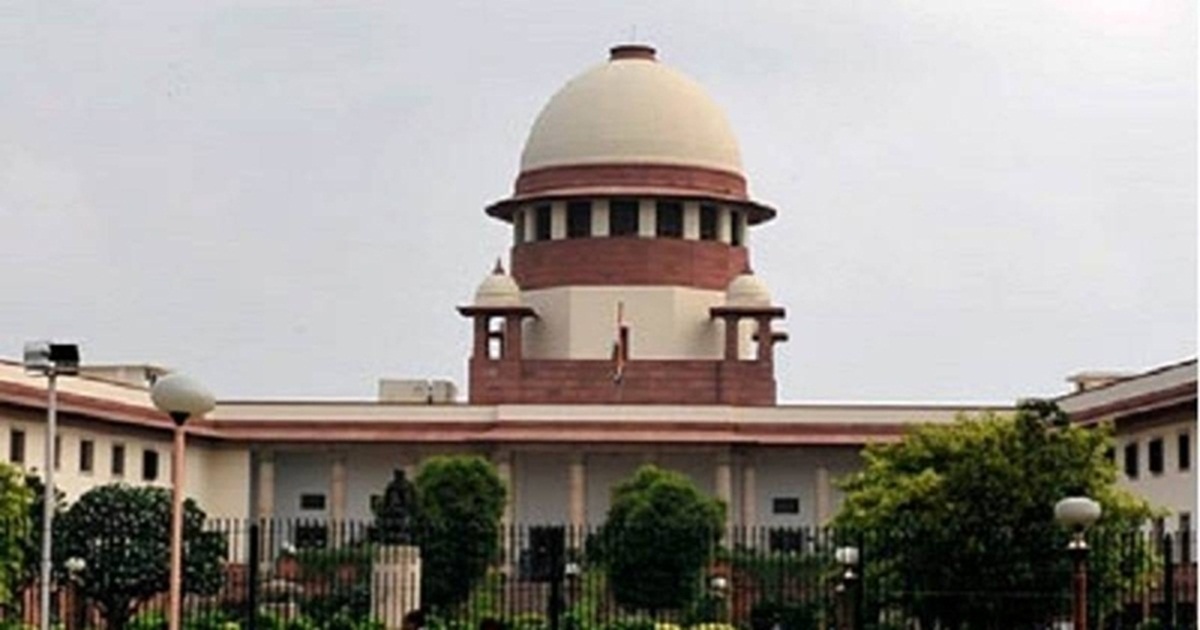New Delhi: On Friday, the Supreme Court of India rejected a Public Interest Litigation (PIL) that sought to declare the Tax Deducted at Source (TDS) system as “manifestly arbitrary, irrational, and violative of various fundamental rights.” The petition, filed by advocate Ashwini Upadhyay, challenged the TDS mechanism, arguing that it infringes upon constitutional rights.
The Supreme Court bench, headed by Chief Justice of India (CJI) Sanjiv Khanna, declined to entertain the petition, calling it “very badly drafted.” “Sorry, we will not entertain it. It is very badly drafted. However, you can move the Delhi High Court,” the CJI remarked. The bench also pointed out that the TDS system has been widely adopted in many countries, which suggests its validity and utility.
The PIL, filed by advocate Ashwani Dubey, aimed to scrap the TDS system, labeling it “arbitrary and irrational” while alleging that it violates fundamental rights, particularly the right to equality. The plea sought a review of the framework under the Income Tax Act, which mandates the deduction of tax at the time of payment and its deposit with the income tax department. The deducted amount is later adjusted against the payee’s tax liability.
The petition named the Centre, Ministry of Law and Justice, Law Commission, and NITI Aayog as respondents, arguing that the current structure of TDS violates constitutional rights and is in need of re-evaluation.
The TDS system, in place across India, is designed to ensure timely tax collection at the source of income generation. Under this system, the payer (referred to as the “deductor”) is responsible for deducting a certain percentage of tax before making a payment to the recipient (referred to as the “deductee”). The deducted amount is then deposited with the government. The PIL sought to challenge this practice, calling for a reassessment of its structure and legality.







where buy clomid pill can you get generic clomid online can i purchase generic clomid online can i get clomid prices get cheap clomid for sale can i purchase clomiphene online where can i get generic clomiphene without prescription
More posts like this would make the blogosphere more useful.
This is a topic which is virtually to my verve… Diverse thanks! Faithfully where can I notice the contact details an eye to questions?
buy azithromycin 250mg for sale – buy ofloxacin without prescription cheap flagyl
order generic semaglutide 14mg – buy semaglutide 14 mg oral periactin 4 mg
order motilium online cheap – sumycin 250mg price buy generic flexeril 15mg
augmentin medication – atbioinfo buy acillin pills
warfarin 2mg cost – https://coumamide.com/ hyzaar ca
purchase mobic sale – relieve pain mobic price
buy deltasone 40mg generic – https://apreplson.com/ buy prednisone 5mg online cheap
over the counter ed pills that work – can i buy ed pills over the counter best pills for ed
buy amoxicillin pills – purchase amoxil buy amoxicillin sale
purchase diflucan pills – this fluconazole price
buy cenforce generic – https://cenforcers.com/ buy cenforce 100mg for sale
buying generic cialis online safe – ciltad generic cheap canadian cialis
is there a generic cialis available in the us – https://strongtadafl.com/# cialis none prescription
buy ranitidine 150mg generic – ranitidine 150mg price buy generic ranitidine 300mg
sildenafil citrate 50mg price – https://strongvpls.com/ sildenafil citrate 100 mg
I am actually enchant‚e ‘ to gleam at this blog posts which consists of tons of useful facts, thanks towards providing such data. este sitio
Thanks on putting this up. It’s evidently done. https://ursxdol.com/get-metformin-pills/
With thanks. Loads of erudition! https://prohnrg.com/product/diltiazem-online/
Thanks towards putting this up. It’s evidently done. notice fildena 25 mg
This website absolutely has all of the low-down and facts I needed about this thesis and didn’t identify who to ask. https://ondactone.com/spironolactone/
This is the big-hearted of scribble literary works I positively appreciate.
buy generic clopidogrel over the counter
Greetings! Jolly productive par‘nesis within this article! It’s the petty changes which will espy the largest changes. Thanks a quantity quest of sharing! http://seafishzone.com/home.php?mod=space&uid=2291209
orlistat order online – this xenical buy online
With thanks. Loads of expertise! https://www.forum-joyingauto.com/member.php?action=profile&uid=49535
You can protect yourself and your dearest close being heedful when buying panacea online. Some pharmacopoeia websites operate legally and provide convenience, privacy, sell for savings and safeguards for purchasing medicines. buy in TerbinaPharmacy https://terbinafines.com/product/zithromax.html zithromax
I’ll certainly return to read more. TerbinaPharmacy
This is the big-hearted of scribble literary works I truly appreciate.
iwin – nền tảng game bài đổi thưởng uy tín, nơi bạn có thể thử vận may và tận hưởng nhiều tựa game hấp
Đến với J88, bạn sẽ được trải nghiệm dịch vụ cá cược chuyên nghiệp cùng hàng ngàn sự kiện khuyến mãi độc quyền.
kuwin sở hữu kho game đa dạng từ slot đến trò chơi bài đổi thưởng, mang đến cho bạn những giây phút giải trí tuyệt vời.